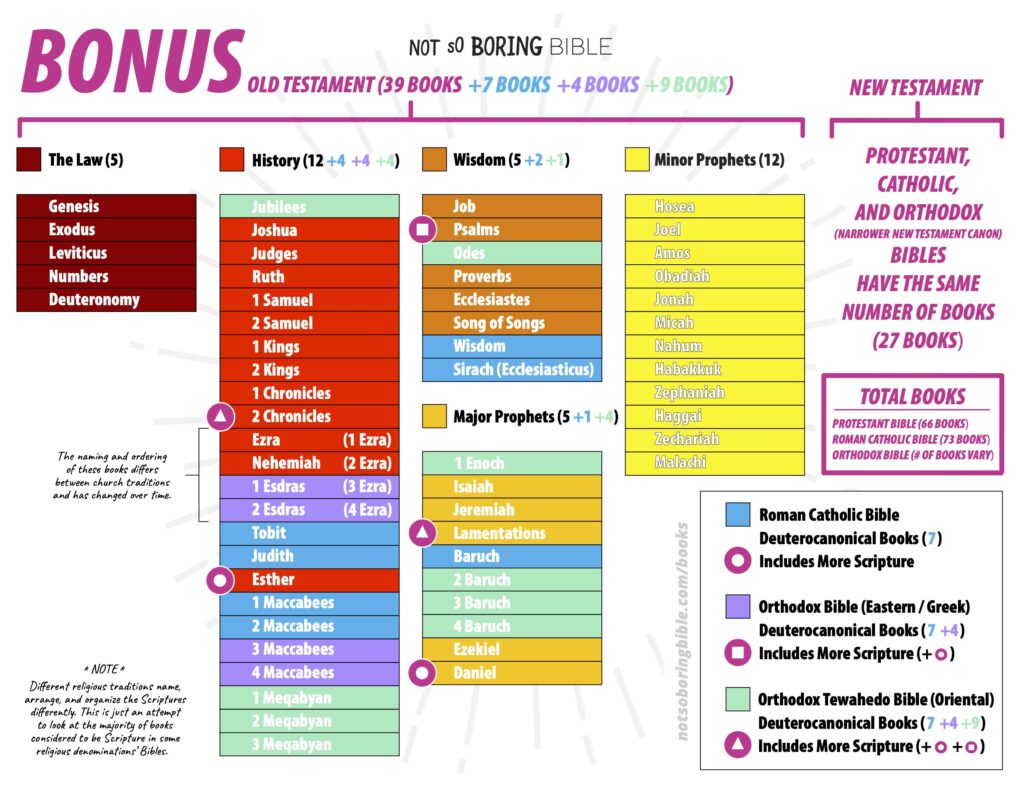Bonus Books in the Bible
The Bible gets a little more complicated after you start to add to the Hebrew Bible. Christians in the three major denominations – Protestant, Catholic, and Orthodox – all agree on these 66 books, but how they name, arrange, and organize the Scriptures in the Bible is different. There’s a protocanon, canon, and deuterocanon that is just going to vary in different religious traditions. Which books in their entirety are God’s Word and true? That’s basically the measuring stick for the standard of Scripture (Psalm 119:160). Let the debate begin! JK, it’s been going on for quite some time.
Here’s our attempt to give you a looksy at what’s on the deuterocanonical table:
Just for fun, let’s look at one chapter of one of these deuterocanonical books – 1 Enoch, chapter 10. Read it. In just the first 12 verses of the chapter it mentions “children of the Watchers” (which sounds weird like Genesis 6:1-4), “ascribing sin to Azazel” (which would help explain that strange goat ritual in Leviticus 16:7-10), “angels chained in darkness awaiting judgement” (which might be where Jude and Peter came up with Jude 1:6 and 2 Peter 2:4), and highlights a period of “seventy generations” til judgement (which is the same period of time Luke fits in the Genealogy of Jesus from, *pause for dramatic effect*, Enoch… as in the Book of Enoch). The Enoch who “was no more, because God took him away” in Genesis 5:21-24 and Luke records Jesus’ arrival 70 generations after this Enoch in Luke 3:21-38. It’s something to wrestle with.
What books were the people who wrote the Bible reading? Did Jude, Peter, or Luke believe 1 Enoch was inspired Scripture? What books did Jesus read? Even if you don’t believe 1 Enoch is “God’s Word,” books that were around during the same time as the Biblical authors might help make sense of their worldview and some of the strange spiritual stuff mentioned in the Bible.
